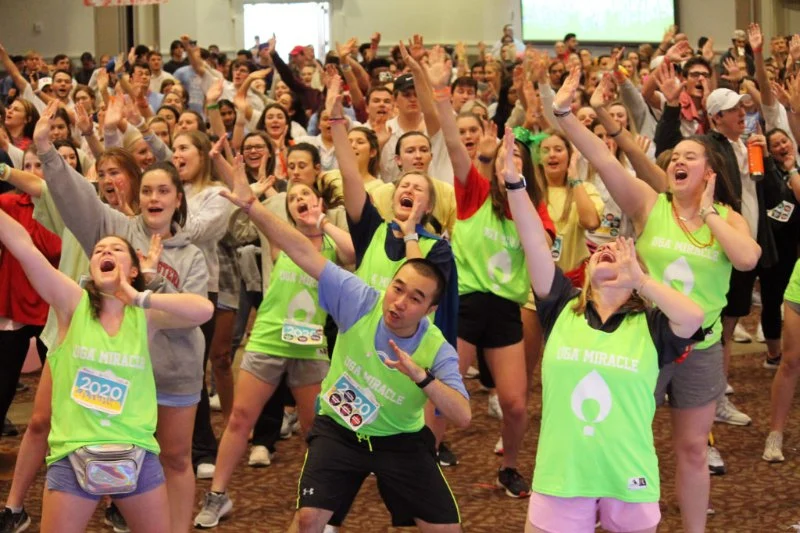
- 1. What is a Dance Marathon?
- 2. History of Dance Marathons
- 3. How Dance Marathons Raise Money
- 4. Endurance Aspect of Dance Marathons
- 5. Successful Examples of Dance Marathons
- 6. How to Participate in a Dance Marathon
1. What is a Dance Marathon?
A Dance Marathon is an endurance event that combines dancing with fundraising. Participants typically dance for extended periods—often 12, 24, or even 48 hours—while raising money for a charity. These events are popular across the United States, especially among students and community groups. They provide a fun and engaging way for people to contribute to a cause while challenging themselves physically and mentally.
Dance Marathons often involve both individual and team participation, where participants raise funds through sponsorships and donations from friends, family, and community members. The longer the participants dance, the more money they are able to raise for the charity, making the event both physically demanding and rewarding.

Touch of Class Dance / touch of class dance
DowningtownChester CountyPennsylvania
150 E Pennsylvania Ave, Downingtown, PA 19335, USA
2. History of Dance Marathons
Dance Marathons date back to the early 20th century. Initially, these events were organized as endurance competitions where participants would dance for days on end, with the goal of outlasting their competitors. While the original Dance Marathons were a form of entertainment, they soon became a platform for fundraising and social awareness.
In the 1970s, colleges and universities began adopting the Dance Marathon concept as a way to support charitable causes. The University of Iowa, for example, hosted one of the first college-based Dance Marathons, which raised significant funds for children’s hospitals. Since then, Dance Marathons have expanded to numerous universities and communities, raising millions of dollars each year for a variety of causes, particularly pediatric hospitals and cancer research.

Ashburn Academy of Dance / ashburn academy of dance
21690 Red Rum Dr #172, Ashburn, VA 20147, USA
3. How Dance Marathons Raise Money
Participants in a Dance Marathon raise money primarily through sponsorships. Before the event, dancers will solicit pledges from their friends, family, and supporters. The more sponsors a dancer has, the more money they can raise. Additionally, many Dance Marathons feature additional fundraising components such as silent auctions, food sales, and raffles.
3.1. Sponsorships and Pledges
Sponsorships are the backbone of most Dance Marathons. Participants reach out to potential sponsors, asking for donations based on how long they can dance. For example, a sponsor might pledge $1 per hour that a dancer stays on their feet. The goal is to keep participants dancing for as long as possible, as each hour danced contributes to the overall funds raised.
3.2. Event-Specific Fundraisers
In addition to sponsorships, many Dance Marathons incorporate additional fundraising activities during the event. These can include selling food, t-shirts, or merchandise, organizing raffles, or hosting a live auction. These activities encourage attendees to donate even if they’re not participating in the dance itself.
4. Endurance Aspect of Dance Marathons
One of the unique features of a Dance Marathon is the physical challenge. Dancers are required to stay on their feet and keep moving for an extended period, often without sitting down. This endurance aspect is what makes these events particularly challenging. Participants must endure hours of physical exertion while maintaining their energy and focus to continue dancing and raise more money for the cause.
To help participants maintain their stamina, Dance Marathons often provide rest breaks, hydration stations, and snacks. The sense of camaraderie among participants, along with the motivation to support a meaningful cause, helps many dancers push through the physical strain.
5. Successful Examples of Dance Marathons
Several Dance Marathons have become iconic, particularly in the university setting. These events are known for their ability to rally large groups of people and raise significant sums of money for charity. Below are a few notable examples:
5.1. Penn State’s THON
THON is one of the largest student-run Dance Marathons in the world. Every year, students at Penn State University participate in a 46-hour event to raise funds for the Four Diamonds Fund, which supports children’s cancer research and provides financial assistance to families. THON has raised over $190 million since its inception, making it one of the most successful Dance Marathons in the country.
5.2. University of Iowa’s Dance Marathon
The University of Iowa’s Dance Marathon is another key example of the event’s success in raising money for pediatric hospitals. The event has become a tradition at the university, raising millions of dollars annually for the Iowa Children's Hospital. The combination of physical endurance and philanthropy makes this event a popular choice for students looking to give back to their community.
6. How to Participate in a Dance Marathon
If you’re interested in participating in a Dance Marathon, here are the steps to get started:
6.1. Find an Event
Search for local Dance Marathons or college-hosted events. Many universities and community groups host Dance Marathons throughout the year. You can also check with organizations like the Children's Miracle Network, which partners with Dance Marathons to support children's hospitals across the country.
6.2. Register and Fundraise
Once you’ve found an event, you’ll need to register as a participant. After registration, begin fundraising by reaching out to family and friends for sponsorships. Set a fundraising goal and encourage as many people as possible to contribute. Remember, the more money you raise, the greater the impact you’ll have on the charity you’re supporting.
6.3. Prepare for the Event
Training for a Dance Marathon involves preparing physically and mentally for the endurance challenge. Consider doing some light cardio exercises and stretching to prepare your body for long hours of dancing. Bring comfortable clothing and shoes, and make sure to stay hydrated during the event.
For more information on participating in Dance Marathons or to get involved in your local community, visit Creative Edge Dance Studio for tips and guidance on staying active and supporting charity events.
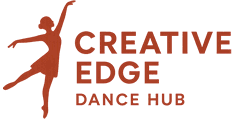
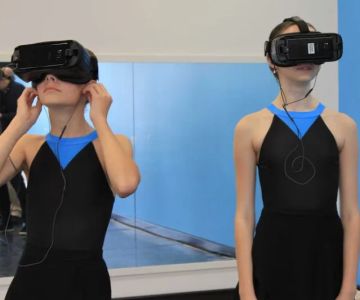
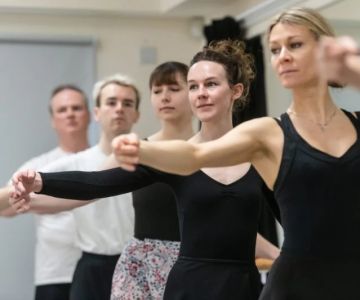

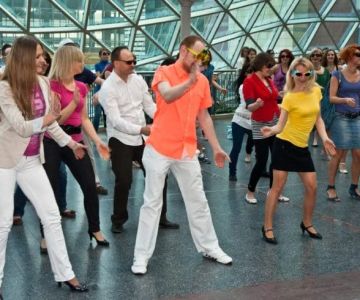

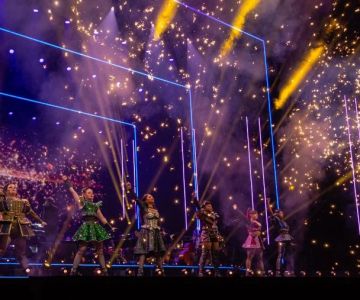
 Step By Step Center For Dance5.0 (8 reviews)
Step By Step Center For Dance5.0 (8 reviews) Arthur Murray Dance Studio of Dallas4.0 (31 reviews)
Arthur Murray Dance Studio of Dallas4.0 (31 reviews) Elevate Pole Fitness & Dance Studio5.0 (17 reviews)
Elevate Pole Fitness & Dance Studio5.0 (17 reviews) Ironbound Fitness3.0 (174 reviews)
Ironbound Fitness3.0 (174 reviews) Social Dance Studio 455.0 (10 reviews)
Social Dance Studio 455.0 (10 reviews) DCBX Entertainment & Live Events4.0 (13 reviews)
DCBX Entertainment & Live Events4.0 (13 reviews) How I Learned to Choreograph with Live Musicians — My Story
How I Learned to Choreograph with Live Musicians — My Story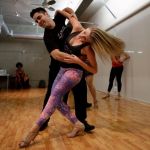 What is Zouk? Brazilian and Caribbean Fusion Dance | Creative Edge Dance Studio
What is Zouk? Brazilian and Caribbean Fusion Dance | Creative Edge Dance Studio What is Dance Therapy? Using Movement for Healing
What is Dance Therapy? Using Movement for Healing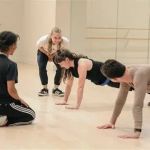 What is Dance Improv? How to Trust Your Instincts
What is Dance Improv? How to Trust Your Instincts The Role of Rhythm and How to Find Yours If You Struggle
The Role of Rhythm and How to Find Yours If You Struggle How to Clean and Maintain Your Dance Shoes to Make Them Last
How to Clean and Maintain Your Dance Shoes to Make Them Last